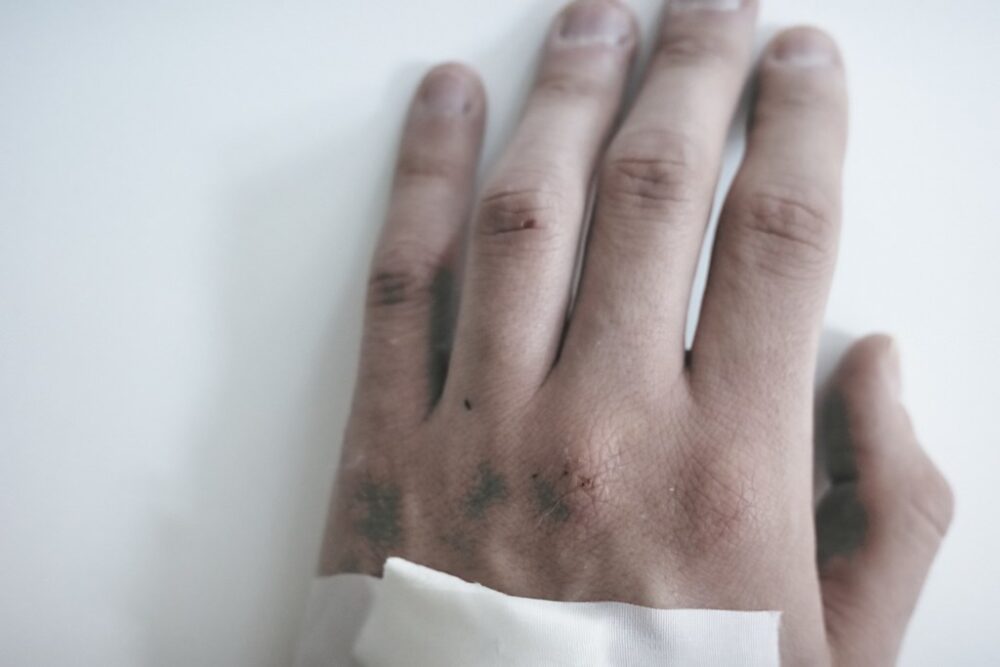On July 23, 2022, the World Health Organization (WHO) declared monkeypox a global health emergency. Over the past two years, the world has intently watched the emergence of a new disease and its variants. Every news channel came with a new update on the respiratory disease and the victims it carried. Even popular shows and other media had a hard time avoiding the updates concerning the virus. The COVID-19 pandemic heightened the world’s awareness, yet when it comes to monkeypox, the public has expressed less anxiety at the presence of disease compared to when coronavirus arrived on their doorsteps. A survey conducted by Annenberg Public Policy Center of the University of Pennsylvania reported that only 19% of people are concerned about coming into contact with monkeypox in the next three months, compared to 30% of people who are still concerned about receiving coronavirus in that same timeframe. So why might this be the case? Is it due to a lack of knowledge of what the disease is? Or has the preceding and never-ending presence of COVID-19 worn out society to news of another emergency?
The monkeypox virus, like the coronavirus family of viruses, is not as new as people may think when first hearing about the disease. Monkeypox was discovered in 1958 when two outbreaks of a pox-like disease occurred in colonies of monkeys that were kept for research. In 1970, public health officials recorded the first human case of monkeypox in the Democratic Republic of the Congo. Since then, monkeypox had been reported in several central and western African countries before its global emergence in 2022. The source of the disease still remains unknown. There is suspicion monkeys were the first species to carry the disease, as the name of the virus implies, but scientists are not certain. This uncertainty displays how the name of the disease itself may promote false assumptions of where the virus originated.
The COVID-19 pandemic heightened the world’s awareness, yet when it comes to monkeypox, the public has expressed less anxiety at the presence of disease compared to when coronavirus arrived on their doorsteps.
Monkeypox has sparked many questions, but some have questioned the name of the disease itself. Not only has it spread false assumptions of where the virus originated, but critics also claim that the name can promote racial stereotypes to those of African origin. Along with the slow rise of attention the virus has been receiving, scientists have been fighting for changing the name of the disease before it catches on into society. But it may be too late. Dr. Ifeanyi Nsofor, a global health equity advocate and senior New Voices fellow at the Aspen Institute, warns of the stigmatization that the disease can bring. People like Nsofor bring attention to how similar the news of monkeypox can be to coronavirus. The racism monkeypox has brought is reminiscent of how coronavirus brought racism towards those of Asian descent.
The name may also remind some of the similarly-named smallpox, which was a disease that became famous as the first virus eradicated by humankind. It can also remind some of chickenpox, a disease that dominated childhood viruses for a duration of time in human history. It is important to note that monkeypox is more related to smallpox than it is to chickenpox. In fact, it is not related to the contagious childhood disease at all. Smallpox belongs to the family of viruses known as the variola virus. The monkeypox virus happens to be a part of this family of viruses as well. Though smallpox’s eradication is considered a huge success, it did not stop similar diseases from developing and thriving.
The spread of the disease prior to 2022 was linked to international travel to countries where the disease commonly occurred. It can also be connected through imported animals. For example, African rodents and non-human primates (like monkeys). Organizations like WHO are still investigating how the spread of monkeypox has led to clusters being reported concurrently in countries where monkeypox is endemic, countries where it is not, and between widely disparate geographical areas. Scientists themselves are still researching if the virus can be spread by someone who has no symptoms, but researchers believe that the majority of cases spread through sex. This point may bring some reasoning on why the news of monkeypox may not concern the public and has had a slow rise in media attention when compared to the news of coronavirus. Some outlets in the media find sexual health related to the LGBTQ+ community to be weary or taboo, which may lead to less coverage of the disease. Additionally, learning about its transmission is not as applicable to everyone as was coronavirus. In fact, even though the public portrays less anxiety, specific populations like communities of queer men are extremely anxious. The transmission of the virus centered on sexual transmission, especially between men, has caused many media outlets and society at large to turn away from recognizing the presence of monkeypox.
The transmission of the virus centered on sexual transmission, especially between men, has caused many media outlets and society at large to turn away from recognizing the presence of monkeypox.
However, this is not the only way the disease spreads. On July 29, 2022, the CDC reported it can spread to anyone through close, personal, and often skin-to-skin contact. This includes: direct contact with monkeypox rash, scabs, or body fluids from a person with monkeypox; touching objects, fabrics (clothing, bedding, or towels), and surfaces that have been used by someone with monkeypox; and contact with respiratory secretions. The virus can spread to others from the time symptoms start until the rash has fully healed and a fresh layer of skin has formed, which typically takes 2-4 weeks.
In terms of its symptoms, monkeypox is considered milder than smallpox. But for people with immunocompromising conditions or certain skin conditions, such as eczema, there is a risk of severe monkeypox disease. WHO recommends that for those who are experiencing symptoms, the best action to do is to contact your healthcare advisor for advice and ask for testing or medical care. During the time period of waiting for the results to either deny or confirm speculation of the disease, one should isolate themselves. While researchers are still looking into how monkeypox spreads, they recommend cleaning your hands regularly and avoiding behaviors such as trying on clothes in stores, sharing drinks or food as well as personal cleaning items (such as towels and personal toiletry), and physical contact with others (such as kissing, cuddling, etc.).
WHO recommends that for those who are experiencing symptoms, the best action to do is to contact your healthcare advisor for advice and ask for testing or medical care.
Vaccinations are available for monkeypox. Though its presence may seem new and surprising to some — like with how the COVID-19 vaccine was provided to the public within a year — the even faster release of the monkeypox vaccine did not cause as much controversy among the public. One reason for this might be how the vaccination was developed by modeling it after the smallpox vaccine. It has been reported by WHO that while smallpox vaccines were shown to be protective against monkeypox in the past, there is limited current data on the effectiveness of newer smallpox and even monkeypox vaccines in clinical practice. However, the data available has shown that the vaccine is effective and should be taken into consideration for those who feel they might be at risk of exposure to the disease.
The disease’s low mortality rate and transmissibility compared to COVID-19 are also possible reasons for why the disease has been able to quietly make its trip around the globe without fast media coverage. Though there is now more information emerging about the virus, its name has been talked about for months. While the media has failed to provide early coverage about the presence of monkeypox, this does not mean prevention is impossible. It is still important to recognize monkeypox’s presence and to help stop the spread of the diseases in general, no matter how tiring their emergence can be.
For further reading:


